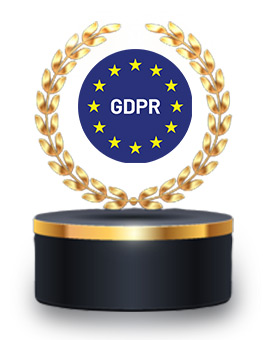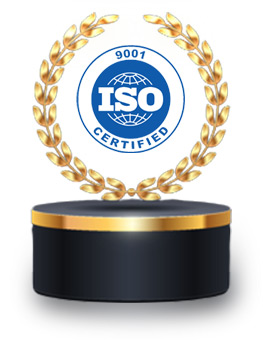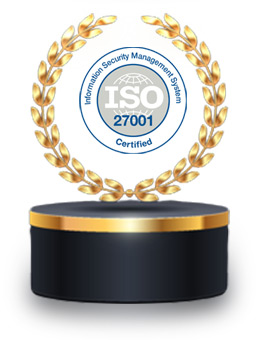Overtime, leveraging data analytics software to gain insights into customer behavior and market trends has become crucial. The implementation of Customer Relationship Management (CRM) systems is not merely about managing relationships anymore. It's also about analyzing customer data for strategic decision-making that propels business growth. In this blog, we delve into the importance of CRM and analytics for businesses and how they can drive growth.
Customer Relationship Management (CRM) is a strategy and technology used to manage interactions with customers and prospects.It involves collecting customer data to improve sales, customer service, and marketing.
Analytics provide insights into customer behavior, sales trends, and business performance They help in making data-driven decisions that improve business outcomes.CRM systems collect data on customer interactions, while analytics tools process and analyze this data.
Choose the right CRM software that supports analytics.Ensure data quality and accuracy Regularly monitor and adjust strategies based on analytics Train employees to use CRM and understand analytics.Growing use of AI and machine learning to automate data analysis and provide real-time insights.
Analytics involves the systematic analysis of data to identify trends, patterns, and insights that can inform business decisions. When integrated with CRM, analytics allow companies to gain deeper insights into customer behavior, predict future trends, and optimize business operations. Here’s how analytics contribute to business growth.
Analytics turn raw data into actionable insights. By analyzing customer data, businesses can make more informed decisions regarding marketing, sales strategies, and product development.
Advanced analytics can help companies detect new market trends and customer needs, allowing them to seize growth opportunities early. Predictive analytics can forecast demand, enabling businesses to prepare for market changes proactively.
With CRM analytics, businesses can segment customers based on various criteria such as purchase history, demographics, and behavior. This segmentation enables more targeted and personalized marketing campaigns, leading to higher conversion rates.

Data-driven decisions streamline processes, allowing businesses to allocate resources more effectively and eliminate wasteful practices.CRM systems consolidate data from various touchpoints, such as sales, customer service, and marketing, into a single platform. This centralized data allows decision-makers to have a complete picture of customer behavior and trends.
Informed decision making reduces the chances of errors by relying on objective information rather than subjective judgment.Advanced CRM systems use predictive analytics to forecast future trends and customer behaviors, helping businesses anticipate changes and adapt their strategies accordingly.
Understanding customer preferences and behaviors through data analysis allows companies to better meet their needs, leading to higher satisfaction and loyalty.Using CRM data, sales teams can identify which leads are more likely to convert, prioritize high-value prospects, and personalize their approach to close deals faster.
Businesses that make data-backed decisions can respond quickly to market changes, capitalize on new opportunities, and stay ahead of competitors.Analytics can reveal new market opportunities, emerging customer needs, and untapped revenue streams, helping businesses expand and grow.

In an era where customer experience is a key differentiator, businesses need to ensure they deliver personalized and seamless experiences. CRM and analytics can help here by providing a 360-degree view of each customer. Businesses can use this data to personalize their interactions and offerings, enhance customer satisfaction, and consequently, improve customer loyalty and retention.
Customers who enjoy positive experiences with a brand are more likely to become repeat buyers and develop long-term relationships with the company.CRM tools can track the entire customer journey, from initial contact to post-purchase support.
Satisfied customers are less likely to switch to competitors, reducing churn rates and enhancing overall customer retention.CRM software can automate follow-up emails, reminders, and feedback requests, ensuring that customers stay engaged throughout their journey.
Enhanced customer experiences often lead to higher sales, as happy customers are more inclined to make additional purchases and provide referrals.Businesses that prioritize customer experience can differentiate themselves from competitors, attracting more customers and increasing market share.
CRM systems coupled with data analytics can significantly improve the efficiency of the sales process. Sales teams can analyze customer data to identify potential leads, understand their needs, and develop targeted sales strategies. Furthermore, predictive analytics can forecast future sales trends, helping businesses plan their resources and strategies more effectively.
An efficient sales process starts with effective lead management. CRM systems can help organize and prioritize leads based on their likelihood to convert.
A streamlined sales process can significantly reduce the time it takes to move a prospect from initial contact to closing a deal.
Using data to inform sales strategies can significantly improve the efficiency of the sales process. Analytics provide insights into which sales tactics are working and where improvements are needed.
In conclusion, CRM and analytics are not just tools but strategic assets that can significantly contribute to business growth. As the business environment becomes increasingly competitive and customer-centric, businesses that leverage CRM and analytics effectively will have a distinct advantage. It's clear that the future of business growth lies at the intersection of CRM and analytics.
An efficient sales process is essential for driving business growth, enhancing sales team productivity, and improving customer satisfaction. By leveraging CRM and analytics, businesses can streamline lead management, accelerate sales cycles, and make data-driven decisions that optimize sales strategies.
Here’s why we stand out from the
crowd and our due recognition for the
innovation and excellence we pioneer in the industry.









Take your business to the next level. Trusted by 5000+ business globally.